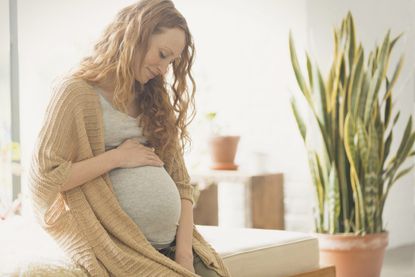Researchers suggests Viagra could be a 'game changer' for emergency C-sections
It could mean births are much easier


Each year in the UK, around 100,000 babies become distressed during labour and have to be delivered by emergency caesarean.
And, it’s a figure which has been slowly rising in recent years. Yet new research in Australia has discovered that sildenafil citrate, an active ingredient found in erectile dysfunction drug Viagra, could potentially help reduce the need for this emergency procedure.
According to Australian scientists, the drug works by increasing blood flow to the placenta and improving oxygen supply to the baby. This in turn would then reduce the risk of babies becoming distressed.
‘It could be a game changer,’ says obstetrician Professor Sailesh Kumar, from the Mater Research Institute at the University of Queensland, who made the discovery.
‘Increasing blood flow improves the transport of oxygen and nutrients to the baby and this may reduce the risk of the baby becoming distressed in labour.’

In his pilot trial involving 300 full-term pregnant women in labour, Professor Kumar found that sildenafil citrate halved the rate of women needing an emergency caesarean, halved the use of forceps in delivering babies and cut the time spent in the later stages of labour by half.
‘Emergency caesarean births are associated with poorer results for both the mother and baby,’ adds Professor Kumar. ‘If we were able to reduce the burden of this medical problem, we could potentially make a difference to overall perinatal outcomes worldwide.’
GoodtoKnow Newsletter
Parenting advice, hot topics, best buys and family finance tips delivered straight to your inbox.
However, while the Australian results look promising so far, a similar European trial did not receive the same results.
Research using sildenafil citrate across 10 hospitals in the Netherlands was abandoned last year after 11 babies developed fatal lung problems.
It's important to note, the trial in the Netherlands was slightly different to the Australian one however, – as a higher dose of the drug was given to the mothers much earlier in their pregnancy, and involved women whose placentas had been under-performing.
Professor Kumar’s next trial, using 8,500 women in labour, is awaiting funding, but so far he hasn’t seen the same negative effects as the Dutch study.

Faye M Smith is a Senior Health And Lifestyle writer working across Woman & Home, Feel Good You, Woman’s Own and Woman magazine. Having gained an NCTJ postgraduate diploma, Faye has worked for 15 years in journalism, covering a range of lifestyle topics for companies including the BBC, Press Association, News UK and Hachette.
-
 Worried about your teen 'being smelly'? They can't help it, according to scientists, and help is on its way to ease the problem
Worried about your teen 'being smelly'? They can't help it, according to scientists, and help is on its way to ease the problemWe know that puberty can cause all sorts of smells to emanate from teens - now scientists have revealed exactly what you're smelling, and how evolution contributed.
By Lucy Wigley Published
-
 Parenting coach shares 4 'powerful' reframes to try next time it feels like your kid is pushing all your buttons (and #4 is a game changer)
Parenting coach shares 4 'powerful' reframes to try next time it feels like your kid is pushing all your buttons (and #4 is a game changer)A parenting coach has shared four ways parents can reframe their thoughts when their kid has big emotions. Giving them a try could offer big results in little time.
By Lucy Wigley Published